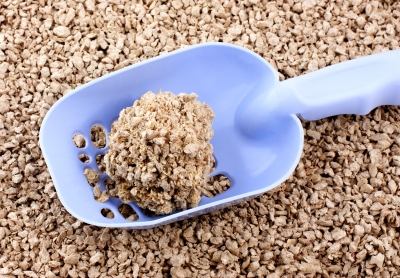What Is the Best Cat Litter?
What Is the Best Cat Litter?
Inadequate cat litter usually means a problem – for a cat parent and for a cat, as well. But, what is the best cat litter? And how to choose the right one? This question is not that simple. It depends on cat’s age, cat’s preferences, and owner’s estimation. If a cat does not like the litter, no matter how easy it looks like to use, we will have a problem. Many cats prefer granulated litter without scent. And, granulated litter absorbs cat’s urine extremely well. Lots of granulated litter can neutralize odor quickly and easily. However, this type of litter should be changed thoroughly at least once a week. On the other hand, clumping litter is much simpler to maintain, but more expensive. If we scoop out clumps once or twice a day, adding fresh litter, we should not clean the litter box more than once a month. Many cats prefer clumping litter over non-clumping, because, the clumps are not difficult to remove. In this way, they can use the rest of the litter box without any complication. Feline experts recommend selecting carefully what litter we will use. They do not recommend abrupt changes. This may cause a litter box problem immediately. To learn more about what is the best cat litter, the article “Cat Litter Box Mistakes That Owners Unknowingly Make” gives us the following suggestion.
What Is the Best Cat Litter?
For those of us who would prefer to use an organic litter, this is a sad fact. In litter preference studies, cats consistently and significantly favor clay clumping litter made of very small granular (sand-like) material over large granule litter made with other types of substrates.
Kitties also have an aversion to litters with a floral or citrus scent, and since most of those litters are synthetic, my advice is to steer clear of scented litters altogether.
As you might guess, many cats are also averse to odor control additives, which most commercial litters contain – typically baking soda or activated charcoal (carbon). Given the option of one or the other, cats prefer carbon to baking soda. If you’re concerned about litter box aversion, my suggestion is to select a litter with no odor control additives. This will give your kitty as natural an environment as possible in which to do his business. Alternatively, you can try a litter with a charcoal or carbon-based odor control additive.
If you have a cat who is eliminating outside the box and is free of any medical issues that might cause the behavior, I recommend providing several litter boxes representing a variety of options (different size boxes, placed in a variety of locations, with a variety of litter choices) so you can determine your kitty’s preference. This is also a good approach when introducing a new cat or kitten to the family.
The small additional expense of trying out different options will be well worth it to solve litter box aversion problems and prevent future or potential house soiling.
When thinking about what the best cat litter is, we should also consider the design of the litter box. Namely, if our cat uses a closed litter tray, scented litter may represent a problem for a cat. The perfect solution when it comes to choosing the right litter is to know our cat and our habits. If we lead a busy lifestyle, then clumping litter might be the best match.










